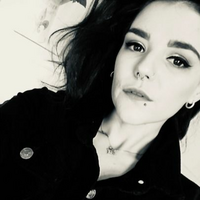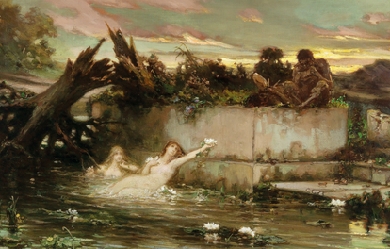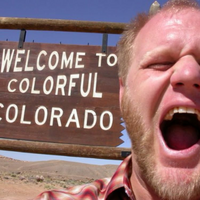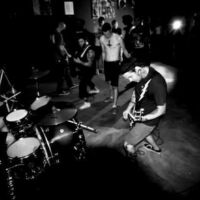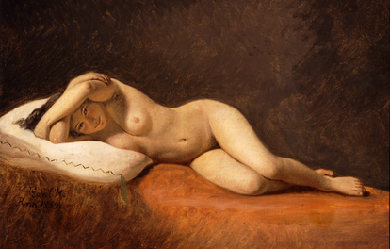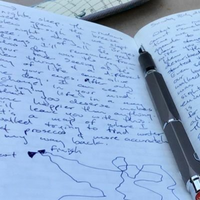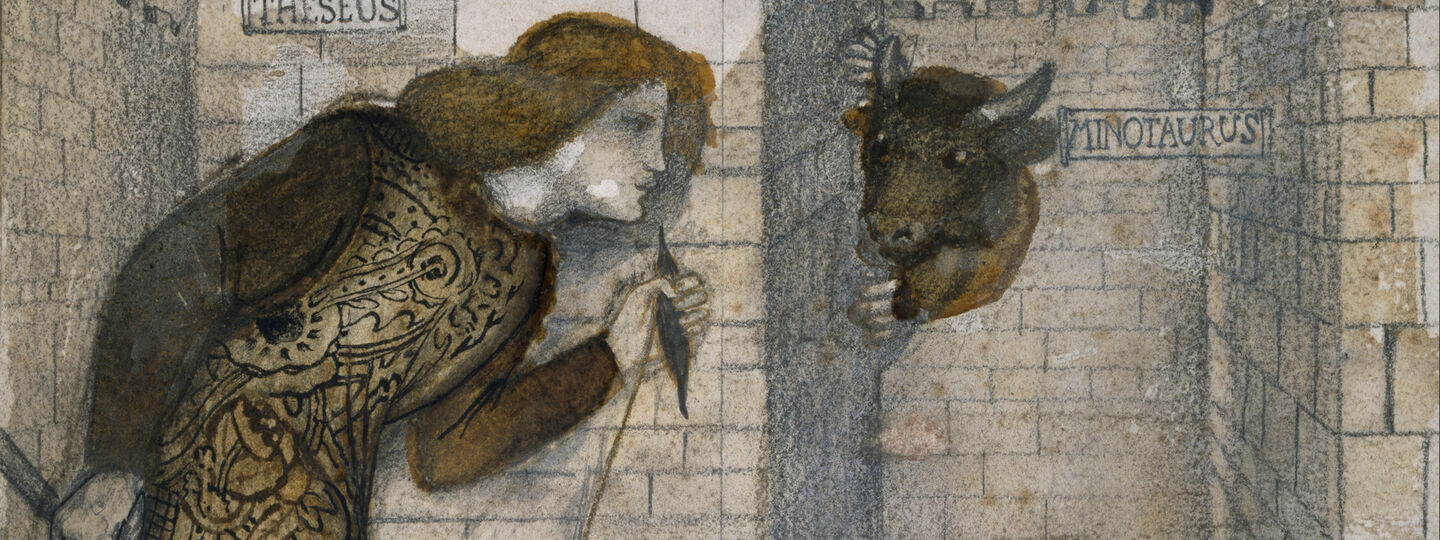
Info

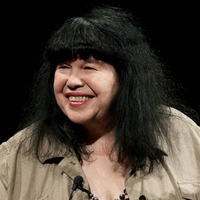
Marge Piercy (born March 31, 1936) is an American progressive activist, feminist, and writer. Her work includes Woman on the Edge of Time; He, She and It, which won the 1993 Arthur C. Clarke Award; and Gone to Soldiers, a New York Times Best Seller and a sweeping historical novel set during World War II. Piercy's work is rooted in her Jewish heritage, Communist social and political activism, and feminist ideals.

I used to be broken, broken enough to stop caring about everything and everyone. Poetry was and is the only thing that gets me through half of my feelings. Read them, enjoy, judge, I don't care. These are some wounds, some mine, some made up, but still can be felt, displayed on this pages. Read them, bandage them or rip off the scab and give another fresh cut. It's your choice.
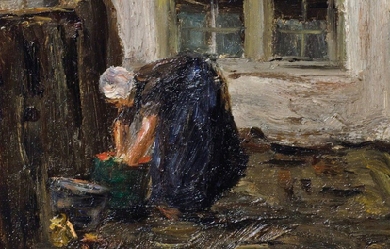

Linda Pastan (born May 27, 1932 in New York) is an American poet of Jewish background. From 1991–1995 she was Poet Laureate of Maryland. She is known for writing short poems that address topics like family life, domesticity, motherhood, the female experience, aging, death, loss and the fear of loss, as well as the fragility of life and relationships. Her most recent collections of poetry include Insomnia, Traveling Light, and Queen of a Rainy Country. Life Pastan has published at least 12 books of poetry and a number of essays. Her awards include the Dylan Thomas Award, a Pushcart Prize, the Alice Fay di Castagnola Award (Poetry Society of America), the Bess Hokin Prize (Poetry Magazine), the 1986 Maurice English Poetry Award (for A Fraction of Darkness), the Charity Randall Citation of the International Poetry Forum, and the 2003 Ruth Lilly Poetry Prize. She also received the Radcliffe College Distinguished Alumnae Award. Two of her collections of poems were nominated for the National Book Award and one for the Los Angeles Times Book Prize. Family As of 2011, she lives in Potomac, Maryland with her husband Ira Pastan, an accomplished physician and researcher. She is the mother of novelist Rachel Pastan; Washington, D.C. chef and restaurateur Peter Pastan; and Atlanta nephrologist Stephen Pastan.
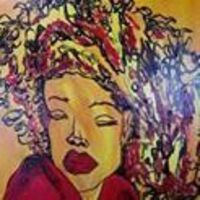
“My art and poetry has been a well kept secret most of my life. It has been my best friend, my confidant, my security blanket, my therapy. Writing saved my life at a time when I was drowning in my own tears. I haven’t had any formal training. I just enjoy the arts. If I’m not painting I’m writing so, I think it’s safe to say that I’ve found my voice.”
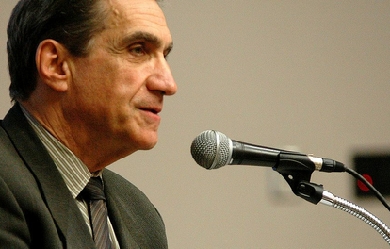
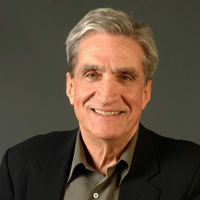
Robert Pinsky (born October 20, 1940) is an American poet, essayist, literary critic, and translator. From 1997 to 2000, he served as Poet Laureate Consultant in Poetry to the Library of Congress. Pinsky is the author of nineteen books, most of which are collections of his poetry. His published work also includes critically acclaimed translations, including The Inferno of Dante Alighieri and The Separate Notebooks by Czesław Miłosz. He teaches at Boston University. Biography Early life and education Pinsky was born in Long Branch, New Jersey to Jewish parents, Sylvia (née Eisenberg) and Milford Simon Pinsky, an optician. He attended Long Branch High School. He received a B.A. from Rutgers University in New Brunswick, New Jersey, and earned both an M.A. and Ph.D. from Stanford University, where he was a Stegner Fellow in creative writing. He was a student of Francis Fergusson and Paul Fussell at Rutgers and Yvor Winters at Stanford. Personal life Pinsky married Ellen Jane Bailey, a clinical psychologist, in 1961. They have three children. Pinsky taught at Wellesley College and at the University of California at Berkeley, and now lives in Cambridge, Massachusetts and teaches in the graduate writing program at Boston University. Career Early on, Pinsky was inspired by the flow and tension of jazz and the excitement that it made him feel. As a former saxophonist, he has said that being a musician was a profoundly influential experience that he has tried to reproduce in his poetry. The musicality of poetry was and is extremely important to his work. Additionally, Pinsky revealed in a 1999 interview with Bomb Magazine that he enjoys jazz for its “physical immediacy, improvisation and also the sense that a lifetime of suffering and study and thought and emotion is behind some single phrase.” Rather than intending to communicate a single or concrete meaning with his work, Pinsky anticipated that his poetry would change depending on the particular subjectivity of each reader. Embracing the idea that people’s individuality would fill out the poem, he has said, “The poetry I love is written with someone’s voice and I believe its proper culmination is to be read with someone’s voice. And the human voice in that sense is not electronically reproduced or amplified; it’s the actual living breath inside a body—not necessarily the second life of reception—not necessarily the expert’s body or the artist’s body. Whoever reads the poem aloud becomes the proper medium for the poem.” Pinsky observes 'the kind of poetry I write emphasizes the physical qualities of the words’ for poetry to Pinsky, is a vocal art, not necessarily performative, but reading to one self or recalling some lines by memory. Pinsky comments ‘all language is necessarily abstract ’ . No aspect of a poem, he observes, is more singular, more unique, than its rhythm, for there are no rules. He received a National Endowment for the Humanities Fellowship in 1974, and in 1997 he was named the United States Poet Laureate and Consultant in Poetry to the Library of Congress, being the first and so far only poet to be named to three terms. As Poet Laureate, Pinsky founded the Favorite Poem Project, in which thousands of Americans of varying backgrounds, all ages, and from every state share their favorite poems. Pinsky believed that, contrary to stereotype, poetry has a strong presence in the American culture. The project sought to document that presence, giving voice to the American audience for poetry. The Shakespeare Theatre of Washington, D.C. commissioned Pinsky to write a free adaptation of Friederich Schiller’s drama Wallenstein. The Shakespeare Theatre presented the play, starring Stephen Pickering in the title role, directed by Michael Kahn, in 2013. Premiering on April 17 of that year, the play had a sold-out run, in repertory with Coriolanus. Pinsky also wrote the libretto for Death and the Powers, an opera by composer Tod Machover. The opera received its world premiere in Monte Carlo in September 2010 and its U.S. premiere at Boston’s Cutler Majestic Theater in March 2011. Pinsky is also the author of the interactive fiction game Mindwheel (1984) developed by Synapse Software and released by Broderbund. Pinsky guest-starred in an episode of the animated sitcom The Simpsons TV show, “Little Girl in the Big Ten” (2002), and appeared on The Colbert Report in April, 2007, as the judge of a “Meta-Free-Phor-All” between Stephen Colbert and Sean Penn. In 2011, Farrar, Straus and Giroux published Selected Poems In 2012, Circumstantial Productions released the CD, PoemJazz, by Robert Pinsky and Laurence Hobgood. Bibliography Poetry Collections * Pinsky, Robert (1975). Sadness and happiness. Princeton UP. * An Explanation of America (1981) Princeton University Press * History of My Heart (1984) Farrar, Straus and Giroux * The Want Bone (1990) Farrar, Straus and Giroux * The Figured Wheel: New and Collected Poems 1966–1996 (1996) Farrar, Straus and Giroux * Jersey Rain (2000) Farrar, Straus and Giroux * Gulf Music: Poems (2007) Farrar, Straus and Giroux * Selected Poems (2011) Farrar, Straus and Giroux Poems Prose * Landor’s Poetry (1968) University of Chicago Press * The Situation of Poetry (1977) Princeton University Press * Poetry and the World (1988) Ecco Press * The Sounds of Poetry (1998) Farrar, Straus and Giroux * Democracy, Culture, and the Voice of Poetry (2002) Princeton University Press * The Life of David (2006) Schocken Books * Thousands of Broadways: Dreams and Nightmares of the American Small Town (2009) University of Chicago Press Libretto * Death and the Powers, an opera by Tod Machover (2010) Interactive fiction * Mindwheel (1984) As translator * The Separate Notebooks by Czesław Miłosz, with Renata Gorczynski and Robert Hass (1984) * The Inferno of Dante: A New Verse Translation (1995) As editor * Handbook of Heartbreak (1998) * Americans’ Favorite Poems: The Favorite Poem Project Anthology, with Maggie Dietz (1999) * Poems to Read: A New Favorite Poem Project Anthology (2002) * An Invitation to Poetry: A New Favorite Poem Project Anthology (2004) * Essential Pleasures: A New Anthology of Poems to Read Aloud (2009) * Singing School: Learning to Write (and Read) Poetry by Studying with the Masters (2014) CDs * PoemJazz (2012) Circumstantial Productions Honors and awards * Premio Capri (Italian) in 2009 * Manhae Foundation Prize (Korean) in 2006 * PEN/Voelcker Award for Poetry in 2004 * Poet Laureate Consultant in Poetry to the Library of Congress (1997–2000) * National Endowment for the Humanities Fellowship (1974) * Stegner Fellowship in Creative Writing at Stanford University * Saxifrage Prize (1980) for An Explanation of America * William Carlos Williams Award of the Poetry Society of America * Nominated for the National Book Critics Circle Award for Criticism (1988) for Poetry and the World * Nominated for the Pulitzer Prize for Poetry (1996) for The Figured Wheel: New and Collected Poems, 1966–1996 * Ambassador Book Award in Poetry of the English Speaking Union * Lenore Marshall Poetry Prize (1997) for The Figured Wheel: New and Collected Poems 1966–1996 * Los Angeles Times Book Award (1994) for The Inferno of Dante * Book-of-the-Month Editor’s Choice (1994) for The Inferno of Dante * Academy of American Poets’ Translation Award (1994) for The Inferno of Dante Notes and references Notes and citations Books and printed materials * The Art of Poetry LXXVI: Robert Pinsky" The Paris Review No. 144 (1997), pp. 180–213 (interview) Online resources * Library of Congress Online Resources * “Modernism and Memory,” Pinsky’s lecture from the 2010 Key West Literary Seminar * “In a deepening room,” ArchitectureBoston Magazine, Summer 2014: Books (Volume 18 n2) External links * Official Robert Pinsky Website * The Favorite Poem Project (with videos) Interviews * The Favorite Poem Project site * Concord Academy 2012 Commencement Address * LA Times story on PEN Center Lifetime Achievement award * Audio, Bruce Springsteen reads “Samurai Song”at Wamfest * The PBS NewsHour 5/20/11 Interview * Newark Star-Ledger Springsteen/Pinsky story * Video, Colbert Report, Pinsky with Sean Penn and Colbert * David Kaufman Review in Tablet * Poet Robert Pinsky Takes on King David in a public radio interview on ThoughtCast! * Robert Pinsky’s interview about his time and inspirations in Maine * Cortland Review Interview with Robert Pinsky * Robert Pinsky, The Art of Poetry No. 76. The Paris Review (144). Interview with Ben Downing, Daniel Kunitz. Fall 1997. * The Life of David. Interview with Michael Silverblatt. December 2005. 'Bookworm’. 'KCRW’. Poetry readings * Pinsky read 'Shirt’ aloud on YouTube * Robert Pinsky reads his poem “Street Music”. * Interview with Robert Pinsky for Guernica Magazine * Watch Robert Pinsky read “Book” at Open-Door Poetry * IPA: Robert Pinsky reads a selection of his poetry * Pinsky poetry readings Other * Essential Pleasures: Robert Pinsky’s column on Poems Out Loud (April 2009) * Boston University Press Release * Modern American Poetry on Robert Pinsky * The Academy of American Poets on Robert Pinsky References Wikipedia—https://en.wikipedia.org/wiki/Robert_Pinsky
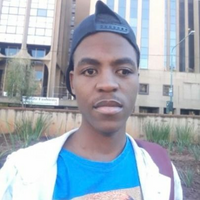
Musa Gift Masombuka is a poet, author, and a distributor for Samnko Books. Born 1998, April 1st. His works are available on sites such as Fundza; Botsotso Magazine; Poeticous, and PoemHunter. He was nominated Best Poet in the 2014 SATMA Awards. His recently published book MY WORDS IN VOLUMES: Emotions Of A Poet is a prescribed library resource for the Gauteng Education department. He has been featured to do forewords; introductions and typeset on books such as Broken Dreams: The Awakening Past by Edwin Mabodimo Mphaga and Love&Lies: My Past Tense by SamNkogatse. He also had the honour to work with the greatest writers such as Sifiso Mtshali; Tshifhiwa Given Mukwevho, Moses Seletisha and Jayne Bauling. Musa has been a competitive writer, participating in literary competitions organised by Maskew Miller Longman, Jacana Media, Write Associates, Commonwealth Writers and the South Afrian Writers College. His short story titled The Initiation was shortlisted in the South African Writers College Annual Short Story Competition 2017.
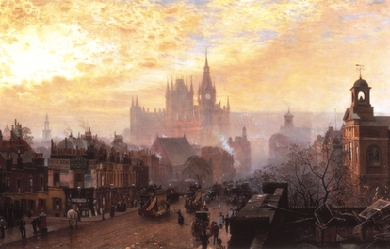
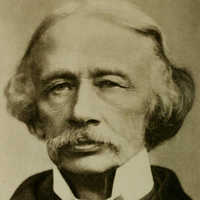
Coventry Kersey Dighton Patmore (23 July 1823– 26 November 1896) was an English poet and critic best known for The Angel in the House, his narrative poem about an ideal happy marriage. The eldest son of author Peter George Patmore, Coventry Patmore was born at Woodford in Essex and was privately educated. He was his father’s intimate and constant companion and inherited from him his early literary enthusiasm. It was Coventry’s ambition to become an artist. He showed much promise, earning the silver palette of the Society of Arts in 1838. In 1839 he was sent to school in France for six months, where he began to write poetry. On his return, his father planned to publish some of these youthful poems; Coventry however had become interested in science, and poetry was set aside.
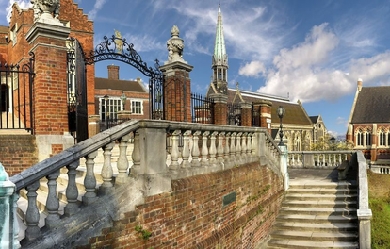
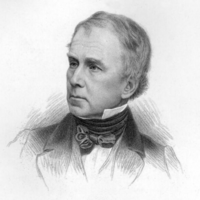
Bryan Waller Procter (pseud. Barry Cornwall) (21 November 1787 – 5 October 1874) was an English poet. Life and career Born at Leeds, Yorkshire, he was educated at Harrow School, where he had for contemporaries Lord Byron and Robert Peel. On leaving school he was placed in the office of a solicitor at Calne, Wiltshire, remaining there until about 1807, when he returned to London to study law. By the death of his father in 1816 he became possessed of a small property, and soon after entered into partnership with a solicitor; but in 1820 the partnership was dissolved, and he began to write under the pseudonym of “Barry Cornwall”. After his marriage in 1824 to Miss Skepper, daughter of Mrs Basil Montague, he returned to his profession as a conveyancer, and was called to the bar in 1831. In the following year he was appointed metropolitan commissioner of lunacy—an appointment annually renewed until his election as one of the Commissioners in Lunacy constituted by the Lunacy Act 1845. He resigned in 1861. Most of his verse was composed between 1815, when he began to contribute to the Literary Gazette, and 1823, or at latest 1832. His daughter, Adelaide Anne, was also a poet. His principal poetical works were: Dramatic Scenes and other Poems (1819), A Sicilian Story (1820), Marcian Colonna (1820), Mirandola, a tragedy performed at Covent Garden with Macready, Charles Kemble and Miss Foote in the leading parts (1821), The Flood of Thessaly (1823). and English Songs (1832). He was also the author of Effigies poetica (1824), Life of Edmund Kean (1835), Essays and Tales in Prose (1851), Charles Lamb; a Memoir (1866), and of memoirs of Ben Jonson and William Shakespeare for editions of their works. A posthumous autobiographical fragment with notes of his literary friends, of whom he had a wide range from William Lisle Bowles to Robert Browning, was published in 1877, with some additions by Coventry Patmore. Charles Lamb gave the highest possible praise to his friend’s Dramatic Sketches when he said that had he found them as anonymous manuscript in the Garrick Collection he would have had no hesitation about including them in his Dramatic Specimens. He was perhaps not an impartial critic. “Barry Cornwall’s” songs have caught some notes from the Elizabethan and Cavalier lyrics, and blended them with others from the leading poets of his own time; and his dramatic fragments show a similar infusion of the early Victorian spirit into pre-Restoration forms and cadences. The results are varied, and lack unity, but they abound in pleasant touches, with here and there the flash of a higher, though casual, inspiration. Rather unknown outside Britain in his times and largely considered to be imitator of greater romantic authors, Barry Cornwall however inspired Alexander Pushkin to some translations and imitations in 1830. Just hours before his last duel in 1837 Pushkin sent a collection by Cornwall to a fellow author, Mrs. Ishimova, suggesting that she should translate some poems selected by him. William Makepeace Thackeray dedicated Vanity Fair to B.W. Procter. Wilkie Collins dedicated The Woman In White to B.W.Procter. References Wikipedia—https://en.wikipedia.org/wiki/Bryan_Procter
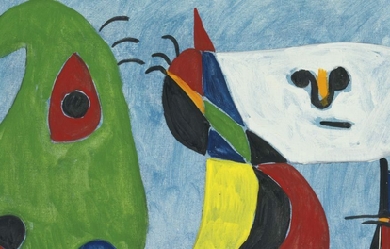
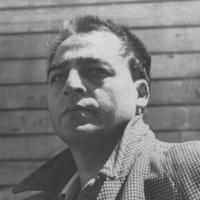
Kenneth Patchen (December 13, 1911– January 8, 1972) was an American poet and novelist. He experimented with different forms of writing and incorporated painting, drawing, and jazz music into his works, which were often compared with those of William Blake and Walt Whitman. Patchen’s biographer wrote that he “developed in his fabulous fables, love poems, and picture poems a deep yet modern mythology that conveys a sense of compassionate wonder amidst the world’s violence.” Along with his friend and peer Kenneth Rexroth, he was a central influence over the San Francisco Renaissance and the Beat Generation. Life Early years Patchen was born in Niles, Ohio. His father Wayne made his living in the nearby steel mills of Youngstown which Patchen would reference in his poems “The Orange Bears” and "May I Ask You A Question, Mr. Youngstown Sheet & Tube?" Patchen kept a diary from the age of twelve and read Dante, Homer, Burns, Shakespeare and Melville. I remember you would put daisies On the windowsill at night and in The morning they'd be so covered with soot You couldn't tell what they were anymore. — from "The Orange Bears", Red Wine and Yellow Hair (1949) His family included his mother Eva, his sisters Ruth, Magel, Eunice, and Kathleen, and his brother Hugh. In 1926, while Patchen was still a teenager, his younger sister Kathleen was struck and killed by an automobile. Her death deeply affected him and he would later pay tribute to her in his 1948 poem “In Memory of Kathleen.” Patchen first began to develop his interest in literature and poetry while he was in high school, and the New York Times published his first poem while he was still in college. He attended Alexander Meiklejohn’s Experimental College (which was part of the University of Wisconsin), in Madison, Wisconsin, for one year, starting in 1929. Patchen had a football scholarship there but had to drop out when he injured his back. After leaving school, Patchen travelled across the country, taking itinerant jobs in such places as Arkansas, Louisiana and Georgia. Marriage Next, Patchen moved to the East Coast, living in New York City and Boston. While in Boston, in 1933, he met Miriam (néeOikemus) at a friend’s Christmas party. At the time, Miriam was a college freshman at Massachusetts State College in Amherst. The two kept in touch and Patchen started sending her the first of many love poems. They soon fell in love and decided to get married. First Patchen took her to meet his parents in Youngstown, then they got married on June 28, 1934, in nearby Sharon, Pennsylvania. During the 1930s the couple moved frequently between New York City’s Greenwich Village and California, as Patchen struggled to make a living as a writer. Despite his constant struggle, his strong relationship with Miriam supported him and would continue to support him through the hardships that plagued him for most of his adult life. The couple moved to a cottage in Old Lyme, Connecticut in 1947. Then in 1951, a few years after befriending the West Coast poet Kenneth Rexroth, the Patchens moved to the West Coast, living first in San Francisco, and then moving to Palo Alto in 1957. Health problems In 1937, while trying to fix a friend’s car, Patchen suffered a permanent spinal injury which was to give him extreme pain, to varying degrees, for the rest of his life and which required multiple surgical procedures. In a letter to a friend from 1960, Patchen explained, "In 1956 a spinal fusion [operation] (second of two operations) gave me relief and mobility (& for the first time I was able to go about giving readings, and so on.” By this point, he and his wife had moved from San Francisco to Palo Alto to be closer to the Palo Alto Clinic where both Miriam and Kenneth were receiving treatment. Then, in 1959, Patchen notes in the letter quoted above, that another surgery at the Presbyterian Medical Center of San Francisco ended in disaster. He writes, "During [a] surgical procedure for my throat, and while under complete anesthesia, I suffered another slipped disc." Though he was heavily sedated during the procedure, Patchen suspected that he had been dropped at some point during the procedure (though he couldn’t prove it). Tragically, the mishap left Patchen in considerably more pain and disabled for the rest of his life. In 1963, he sued his surgeon for medical malpractice and lost. Politics Throughout his life-time Patchen was a fervent pacifist, as he made clear in much of his work. He was strongly opposed to United States involvement in World War II. In his own words: “I speak for a generation born in one war and doomed to die in another.” This controversial view, coupled with his physical immobilization, may have prevented wider recognition or success beyond what some consider a “cult” following. Final years Patchen lived out the final years of his life with his wife in their modest home in Palo Alto where Patchen created many of his distinctive painted poems, produced while confined to his bed after his disastrous 1959 surgery inadvertently damaged his spine. He died in Palo Alto on January 8, 1972. His wife, Miriam, died 28 years later, in March 2000, also in Palo Alto. Career Writing Patchen’s first book of poetry, Before the Brave, was published by Random House in 1936. His earliest collections of poetry were his most political and led to his being championed, in the 1930s, as a “Proletariat Poet”. This description, which Patchen rejected, never stuck since his work varied widely in subject, style and form. As his career progressed, Patchen continued to push himself into more and more experimental styles and forms, developing, along with writers such as Langston Hughes and Kenneth Rexroth, what came to be known as jazz poetry. He also experimented with his childlike “painted poems,” many of which were to be published posthumously in the 1984 collection What Shall We Do Without Us. After the appearance of his first book, he and Miriam traveled to the Southwest, moving on to Hollywood in 1938 where he tried, unsuccessfully, writing film scripts and worked for the WPA. His next book of poems First Will and Testament drew the attention of James Laughlin, then launching New Directions Publishing as a student at Harvard. Laughlin’s decision to publish Patchen’s work started a relationship that would last for the remainder of both men’s careers. For a short time, in 1939, Patchen even took an office job working for New Directions. In addition to their professional relationship, Patchen and Laughlin also became good friends. Patchen pioneered “the drawing-and-poem form” as well as the painting-and-poem form and produced over a thousand “painted books”, special copies of his own works with original paintings on the covers. His many hundreds of drawings and paintings have been described as being reminiscent of Blake and Klee. During the course of a long and varied career, he also tried his hand at writing experimental novels such as The Journal of Albion Moonlight and The Memoirs of A Shy Pornographer, as well as the radio play The City Wears A Slouch Hat. Patchen’s Collected Poems was first published in 1969, just a few years prior to his death. Peers One of Patchen’s biggest literary supporters was the novelist Henry Miller who wrote a long essay on Patchen, entitled Patchen: Man of Anger and Light in 1946. In this essay, Miller wrote, “Patchen’s pacifism is closely tied to what he sees as the loss of innocence in society, the corrupted human spirit, and is often expressed with animals. Such is the case with the forbidding ‘The Lions of Fire Shall Have Their Hunting.’” Patchen also had a close, lifelong friendship with the poet E.E. Cummings that began when they were both living in Greenwich Village in the 1940s. Patchen was also close peers with the West Coast poet Kenneth Rexroth who shared Patchen’s anti-war radicalism as well as his interest in combining poetry readings with jazz accompaniment. The two poets began to correspond in the late 40s and in the 1950s. Rexroth encouraged the Patchens to move to San Francisco in the early 1950s. For a record of his correspondence with fellow writers and artists, see Allen Frost’s Selected Correspondence of Kenneth Patchen from Bottom Dog Press. Influence Later, in the 1950s, Patchen became a major influence on the younger beat poets including Allen Ginsberg and Lawrence Ferlinghetti. Miriam Patchen recalled some of these young poets, including Philip Lamantia, Gary Snyder, and Michael McClure, making special visits to the Patchens’ home in San Francisco to pay their respects. However, once the Beats’ popularity grew, Patchen disliked being associated with them and was highly critical of their glorification of drug use and what he perceived to be a strong desire for media attention and fame. Patchen referred to “Ginsberg and Co.” and the media hype surrounding them as a “freak show.” Awards * = * In 1936, soon after the release of his first book, Patchen was awarded a Guggenheim Fellowship. In 1944, he won the Ohioana Award for his book Cloth of the Tempest. He received the Shelley Memorial Award in 1954, and in 1967, he received a $10,000 grant for his contribution to American literature from the National Foundation on the Arts and Humanities. Musical collaborations and recordings * In 1942 Patchen collaborated with the composer John Cage on the radio play The City Wears A Slouch Hat. In the 1950s Patchen collaborated with jazz bassist and composer Charles Mingus, reading his poetry with Mingus’ group, although no known recordings of the collaboration exist. * In the late 1950s Moe Asch of Folkways Records recorded Patchen reading his poetry and excerpts from one of his novels. These recordings were released as Kenneth Patchen Reads with Jazz in Canada (1959), Selected Poems of Kenneth Patchen (1960), Kenneth Patchen Reads His Love Poems (1961), and The Journal of Albion Moonlight (1972). Kenneth Patchen Reads with Jazz in Canada (1959) was recorded in Vancouver the same week as a live performance for CBC Radio. The original record included a mimeographed pamphlet featuring poems and credits for the jazz group who played on the record, the Allan Neil Quartet. It was subsequently re-released on CD by the Locust Music label in 2004. * In 1964–65, the English composer David Bedford set an extract from Patchen’s 1948 poem “In Memory of Kathleen” to classical music for the piece A Dream of the Lost Seven Stars. * In November 2004 the Peter Brötzmann Chicago Tentet presented A Homage to Kenneth Patchen at the Chicago Humanities Festival with Mike Pearson reading from The Collected Poems of Kenneth Patchen. A recording was released on the German jazzwerkstatt label entitled Be Music, Night in 2006. Musicians in the performance included Peter Brötzmann– clarinets, alto and tenor saxes; Mats Gustafsson– baritone sax and bass clarinet; Ken Vandermark– baritone sax and clarinet; Joe McPhee– trumpet and alto sax; Jeb Bishop– trombone; Fred Lonberg-Holm– cello; Kent Kessler– bass; Paal Nilssen-Love and Michael Zerang– drums. In 1984 Brötzmann had recorded a solo dedication to Patchen for FMP titled 14 Love Poems, a collection of short unaccompanied reed pieces that mirror textures and cadences found in the poet’s own love poems. * On January 21, 2008, El Records released the record Rebel Poets in America, which included poetry readings with jazz accompaniment by both Patchen and Lawrence Ferlinghetti, including such Patchen classics as “The Murder of Two Men by a Young Kid Wearing Lemon Colored Gloves” and “I Went To The City.” Patchen made these recordings in collaboration with the musician Allyn Ferguson who composed and arranged jazz accompaniment for each individual poem and also led the jazz ensemble. * In October 2011 The Claudia Quintet, with guest vocalists Kurt Elling and Theo Bleckmann, released an album on Cuneiform Records of Patchen’s poetry set to music written by Claudia leader John Hollenbeck. Critical response * Patchen’s work has received little attention from academic critics. However, a few scholars have published critical books on Patchen, including Raymond Nelson, Herbert P. Hogue, and Larry R. Smith. Also, a collection of essays on Patchen’s work was edited by Richard Morgan for the book Kenneth Patchen: A Collection of Essays (1977). * One can also find notable book reviews that provide a reasonably accurate gauge of the public response to Patchen’s work when it was initially published. For instance, Patchen biographer Larry Smith notes that "[the] initial reception to Patchen’s First Will & Testament was positive and strong." Smith notes that a reviewer from The New Republic compared the book to T. S. Eliot’s The Waste Land. The book was also praised in reviews by Louis Untermeyer and John Peale Bishop. However, the book did receive a notably negative review by Delmore Schwartz in Partisan Review. Following this first negative review, Schwartz would remain one of Patchen’s fiercest critics. * In response to Patchen’s novel The Journal of Albion Moonlight (1941), prior to its publication, Henry Miller praised the work in the long essay Patchen: Man of Anger and Light which was published in book form in 1946. Also prior to the book’s publication, Delmore Schwartz read the manuscript and claimed to be so offended by the controversial anti-war stance in the book that he persuaded Patchen’s publisher, New Directions, against publishing it. This forced Patchen to self-publish the book by subscription. Post-publication, the book’s supporters included Miller, Robert Duncan, and James Laughlin; its detractors included Schwartz, Edmund Wilson, and Anaïs Nin. Despite receiving a favorable review from William Carlos Williams in 1942, the novel’s highly experimental style, limited release, and anti-war stance would guarantee it a very limited audience. * In 1943, Patchen’s Cloth of the Tempest received largely negative reviews. One reviewer even accused Patchen of being “naive,” a common criticism aimed at his work, particularly regarding his fervent, pacifistic beliefs. * In the 1950s, Patchen received praise from the jazz critic Ralph Gleason for his jazz-poetry readings with the Chamber Jazz Sextet at the Blackhawk Club in San Francisco. Gleason wrote, "I think [Patchen’s reading] technique presents the possibilities of an entire new medium of expression―a combination of jazz and poetry that would take nothing away from either form but would create something entirely new." When Patchen recorded his jazz-poetry readings, one of the resulting albums drew praise from the poet John Ciardi who wrote that “Patchen’s poetry is in many ways a natural for jazz accompaniment. Its subject and its tone are close to those of jazz.” * In 1958, Patchen’s Selected Poems and his book When We Were Here Together received significant praise from the reviewer Frederick Eckman in Poetry. Eckman favorably compared Patchen’s work to that of the poet William Blake and singled out the poems “Street Corner College,” “Do the Dead Know What Time It Is?,” “The Origin of Baseball,” “Fog,” and “The Character of Love Seen As A Search for the Lost” as some of Patchen’s best pieces. He also called When We Were Here Together “a beautiful book, inside and out.” However, in the very same issue of Poetry, the reviewer Robert Beum wrote a brief, negative review of Patchen’s book Hurrah for Anything, calling the book dull and clichéd. * Patchen’s most important volume, The Collected Poems of Kenneth Patchen, first published in 1968 received largely positive reviews. One reviewer from The New York Times called the book “a remarkable volume” and compared Patchen’s work to Walt Whitman, Hart Crane, D. H. Lawrence, and even to the Bible. And in another review, the poet David Meltzer called Patchen “one of America’s great poet-prophets” and called his body of work “visionary art for our time and for Eternity.” Like the Times review, Meltzer also compared Patchen’s work to Walt Whitman and the Bible in addition to William Blake. Legacy * Although he did not achieve widespread fame during his lifetime, a small but dedicated following of fans and scholars continue to celebrate Patchen’s art. The University of California, Santa Cruz, hosts an archive of Patchen’s work entitled “Patchenobilia,” and many bookstores around the San Francisco Bay Area, Patchen’s final home, continue to host jazz and poetry events which include his works. * Between 1987 and 1991 there were Kenneth Patchen Festivals, celebrating his work, in Warren, Ohio, which encompasses the town of Niles where Patchen was born and grew up. These festivals were sponsored by the Trumbull Art Gallery in collaboration with the University of California, Santa Cruz. In honor of Patchen, the town of Niles also renamed the little street where he was born to “Patchen Avenue.” * In 2011, Kelly’s Cove Press published Kenneth Patchen: A Centennial Selection, edited by Patchen’s friend Jonathan Clark, in celebration of the centenary of Patchen’s birth. * In April 2012, Allen Frost published the Selected Correspondence of Kenneth Patchen, which included 336 pages of letters between Patchen and James Laughlin, Lawrence Ferlinghetti, Henry Miller, Amos Wilder, Dylan Thomas, Thomas Wolfe and E.E. Cummings. * In 2014 Jonathan Clark released a full color collection of Kenneth Patchen photos and art in An Astonished Eye: The Art of Kenneth Patchen, from Artichoke Press and the University of Rochester Library. Bibliography * * Before the Brave, (Random House) 1936 * First Will and Testament (Norfolk, CT: New Directions) 1939 (800 copies) * The Journal of Albion Moonlight, (Self-published) 1941, (New Directions) 1961 * The Dark Kingdom, (New York: Harriss & Givens) 1942 * The Teeth Of The Lion, (New Directions) 1942 * Cloth of the Tempest, (Harper and Brothers) 1943 * The Memoirs of a Shy Pornographer, (New Directions) 1945 * An Astonished Eye Looks Out of the Air, (Untide Press) 1945 * Outlaw of the Lowest Planet, (London: Grey Walls Press) 1946 * The Selected Poems of Kenneth Patchen, (New Directions) 1946 * Sleepers Awake, (New York: Padell Book Co) 1946 * Panels for the Walls of Heaven, (Berkeley, CA: Bern Porter/Gillick Press) 1946 * Pictures of Life and Death, (New York: Padell Book Co) 1946 * They Keep Riding Down All the Time, (New York: Padell Book Co) 1946 * CCCLXXIV Poems, (New York: Padell Book Co) 1948 * Red Wine and Yellow Hair, (New Directions) 1949 * Fables and Other Little Tales, (Karlsruhe Baden: Jonathan Williams) 1953 * Poems of Humor and Protest, (San Francisco: City Lights Books) 1954 * The Famous Boating Party, (New Directions) 1954 * Hurrah for Anything, (New Directions) 1957 * When We Were Here Together, (New Directions) 1957 * Selected Poems, (New Directions) 1957 * The Love Poems of Kenneth Patchen, (San Francisco: City Lights Books) 1960 * Because It Is, (New Directions) 1960 * Hallelujah Anyway, (New Directions) 1966 * But Even So (picture poems), (New Directions) 1968 * Selected Poems (London: Jonathan Cape), 1968 * Collected Poems, (New Directions) 1969 * Aflame and Afun of Walking Faces, (New Directions) 1970 * Wonderings, (New Directions) 1971 * In Quest of Candlelighters, (New Directions) 1972 * Nothing has changed (Artichoke Press) 1975 * The Argument of Innocence, (Oakland CA: Scrimshaw Press) 1976 * Patchen’s Lost Plays, (Santa Barbara, CA: Capra Press) 1977 * Still Another Pelican in the Breadbox, (Youngstown, OH: Pig Iron Press) 1980 * What Shall We Do Without Us, (picture poems) (San Francisco, CA: Sierra Club Books 1984 * Awash with Roses: Collected Love Poems of Kenneth Patchen, (Huron, OH: Bottom Dog Press) 1999. ISBN 978-0-933087-21-7 * We Meet, (New Directions) 2008. 978-0-811217-58-3 * The Walking-Away World, (New Directions) 2008. ISBN 0-8112-1757-4 * Kenneth Patchen: A Centennial Selection, Jonathan Clark (ed) (Kelly’s Cove Press) 2011. ISBN 978-1-61364-453-9 * Selected Correspondence of Kenneth Patchen, Allen Frost (ed) (Huron, OH: Bottom Dog Press), 2012. ISBN 978-1-933964-54-6 Discography * * Selected Poems of Kenneth Patchen: Read by the Author, 1959, Folkways Records, FW09717 (cover artwork by Jackson Pollock) * Kenneth Patchen Reads with Jazz in Canada– with the Alan Neil Quartet, 1959, Folkways Records, FW09718 * Kenneth Patchen Reads His Love Poems, 1961, Folkways Records, FW09719 * The Journal of Albion Moonlight, 1972, Folkways Records, FW09716 * Rebel Poets of America, 2008, (with Lawrence Ferlinghetti) El Records/Cherry Red Records (recorded 1957) References Wikipedia—https://en.wikipedia.org/wiki/Kenneth_Patchen
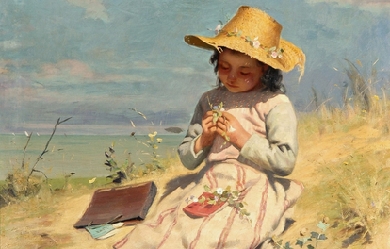
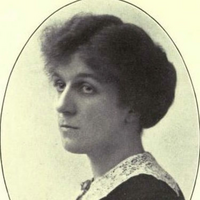
Marjorie Lowry Christie Pickthall (14 September 1883, Gunnersbury, London– 19 April 1922, Vancouver), was a Canadian writer who was born in England but lived in Canada from the time she was seven. She was once “thought to be the best Canadian poet of her generation.” According to her father, she had planned her career before she was six; she would be a writer and illustrator of books. Her parents encouraged her artistic talents with lessons in drawing and music; an accomplished violinist, she continued studying violin until she was twenty.
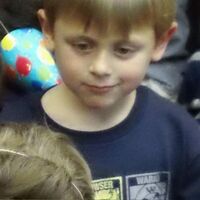
I am a blogger, poet and writer. I own wn Monterey Consulting which examines cost centers at mainly industrial accounts and attempts to reduce cost and get paid in the process. Sometimes, I look at natural gas well cash flows to determine private well owners are getting paid properly. I am good at negotiating and is how I make money consulting. I have a 9 year old son named Joseph. I am in the midst of a divorce. It's been painful for sure. I feel so bad for my son. He's strong and resilient- handling it great on the outside. I wonder what goes on in that little head of his. I worry about him sometimes that he is getting all his parental, moral and general life guidance. What's important in this world--what's not. Things dads say. Moms too. I love learning and researching new and sometimes Paranormal type phenomena. Sometimes this research gets me into trouble, both personally and professionally:it involves military grade weapons being remotely used against Americans as a social experiment. It involves emotion manipulation, increase in sex drives, pharmaceuticals, directed brainwashing targeted media custom designed for you. Sometimes they give you your own private line to call in on. Guessing. It involves the research and study of Electromagnetic Radiation as a naturally occurring energy in nature as well as man made ie electricity I am studying various relationships between EMR and other natural and man made variables. It involves several of the sciences including Astronomy, the laws of physics, chemistry and how the principles and properties of predictable data based on current accepted formulae can be Manipulated. "It's simply cause and effect". Tbc cause however is not always as pure as it seems. There are military personnel that are part of the civilian workforce. They cause accidents to your car, they enter your car and take things pertaining to a book I am writing. Cleaned off my entire c drive as well as stole the printed copy I had in a file drawer. WTF
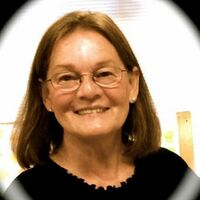
My first memories of writing begin in elementary school when one teacher assigned our class to write a story. He made some very encouraging comments and a writer was born. I have stacks of poems and songs collected over the years. I recently began blogging and found this site and am happy to share some of my work here. I hope you will let me know when you are inspired or touched by what I share with you. You, my readers, inspire me.
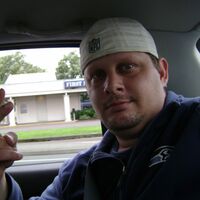
I was born in Vancouver, Washington on August 1st 1978. I have been writing poetry since the age of 16. I love to write and it's my passion. I grew up in a very strict house, I have 4 siblings and two children of my own. I come from a very large family, we all tried to get along together. I've worked in sales in the past, always knew I was better than that. So I am currently getting ready to attend college.
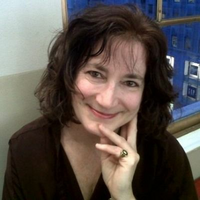
American reporter, photojournalist and adventurer Karen Petersen has traveled the world extensively. In her literary life, she has published poetry, short stories and flash nationally and internationally in a variety of publications. Her poems have been translated into Persian and Spanish. Her first book, a true story set in the Southeast Asian drug trade, is forthcoming.


